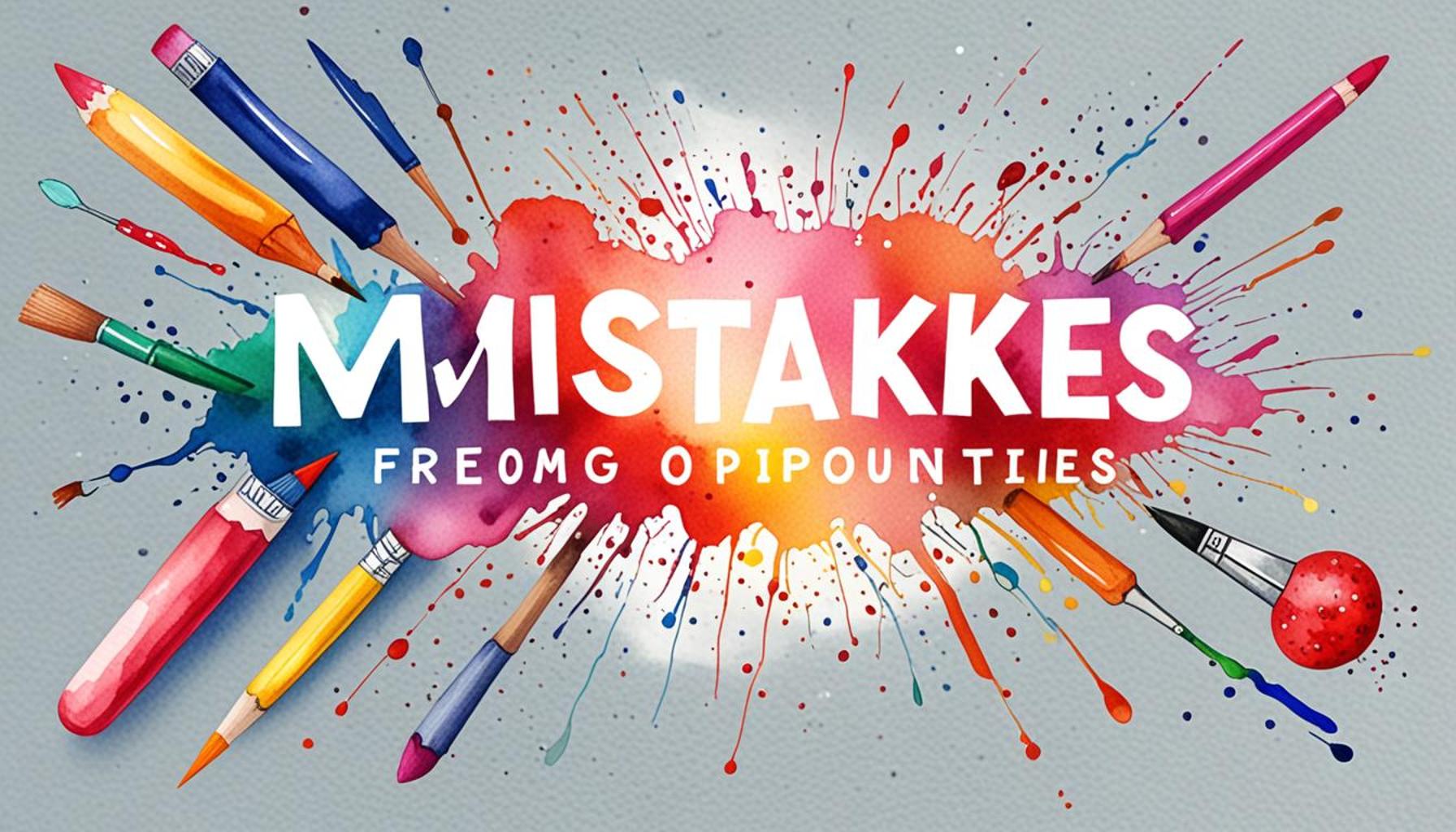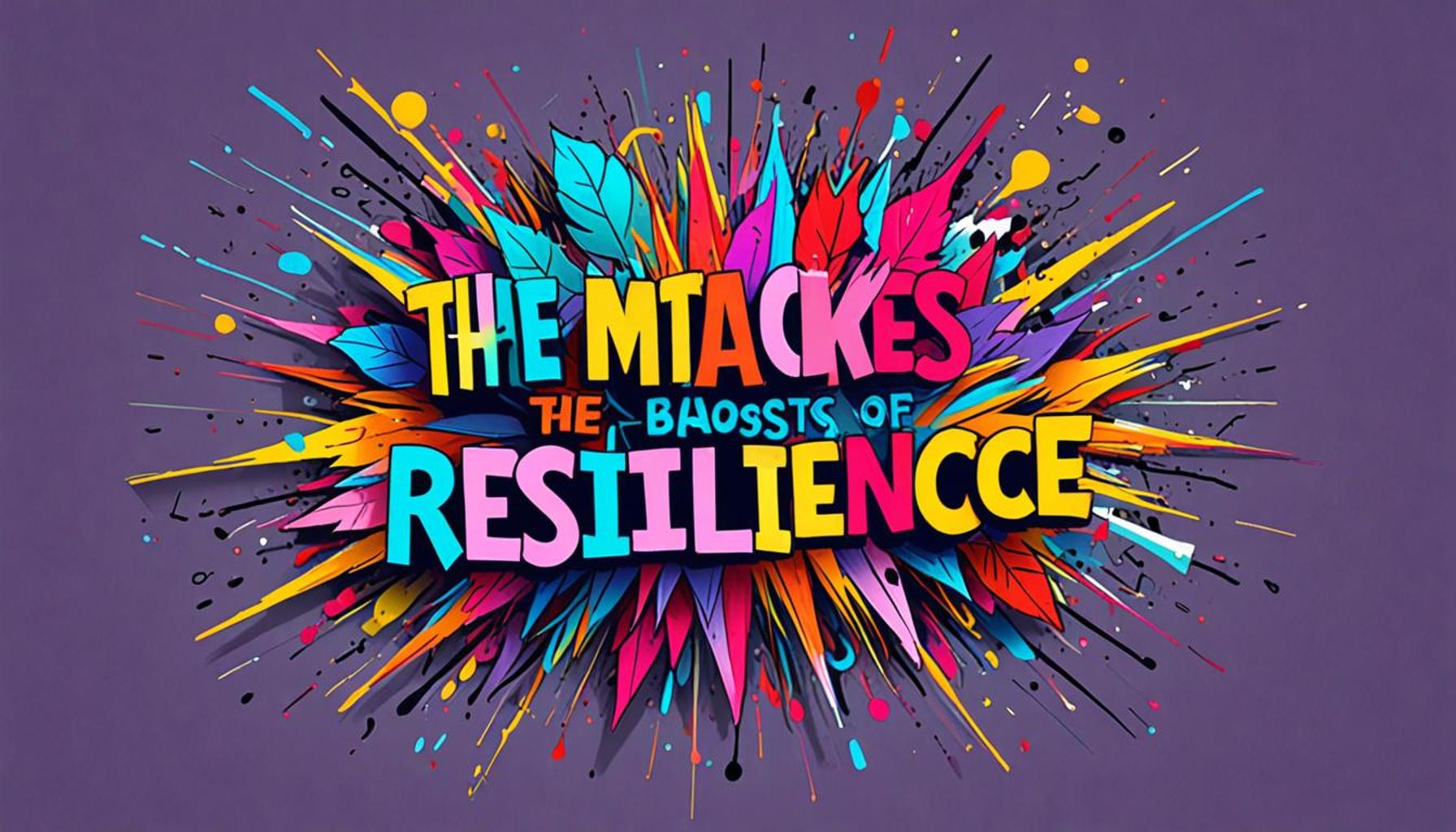From Errors to Opportunities: Transforming Challenges into Learning and Innovation Tools

Embracing Challenges as Catalysts for Growth
In a landscape characterized by rapid changes and increasing competition, the tendency to perceive errors and challenges solely as obstacles can stifle innovation. Yet, these very setbacks often serve as fertile ground for transformative thinking and creative solutions. By shifting our perspective to embrace mistakes as valuable teachers, we unlock pathways to unprecedented growth and problem-solving capacities.
Let’s explore some significant examples that illustrate how confronting challenges can fuel innovation:
- Case Studies: Take the Nigerian e-commerce giant Jumia, which initially struggled with logistics and customer trust. By actively seeking and adapting to customer feedback, Jumia revamped its delivery systems and improved service reliability. Similarly, Paystack faced its share of user adoption issues but responded by refining its payment solutions based on user insights, subsequently becoming a leader in digital payments in Africa.
- Industry Innovations: Startups across Nigeria have shown remarkable agility in the face of unforeseen circumstances, particularly during the pandemic. For instance, many businesses pivoted their operations to e-commerce, creating unique solutions that catered to the changing needs of consumers. Food delivery services expanded rapidly and others began offering online classes, illustrating how constraints can breed inventiveness.
- Community Resilience: Local artisans in Nigeria have a rich history of turning challenges into opportunities. Faced with limited resources, many have started using sustainable materials to create innovative products, reflecting both cultural heritage and environmental consciousness. The emergence of brands like “Made in Nigeria” showcases how adversity can foster creativity, attracting both local and international markets.
Transforming these challenges into opportunities requires a fundamental change in mindset. By cultivating a positive attitude towards errors, we can make a profound impact on our endeavors:
- Learning Environment: Organizations should promote an atmosphere that values constructive feedback where failures are not the endpoint but rather important milestones on the path to success. Innovative giants like Google and Facebook famously allocate time for their employees to explore new ideas without the fear of failure, which leads to groundbreaking products.
- Collaborative Innovation: Engaging teams in brainstorming sessions can reveal hidden insights about past setbacks. Diversifying perspectives can lead to creative solutions that may not have emerged in isolation. Companies like Innoson Motors have benefited from collaborative efforts, refining their vehicles based on both consumer and employee feedback.
- Cultural Shift: Emphasizing resilience and adaptability as core values can create a workplace culture where challenges are embraced as integral to the growth process. Celebrating stories of individuals who’ve overcome failures can encourage others to adopt a similar mindset, thus fostering an environment ripe for innovation.
As we navigate the complexities of our endeavors, recognizing the potential within our errors can lead us to groundbreaking innovations and deeper learning. Embracing challenges is not merely a strategy; it is a transformative journey that can empower individuals and organizations alike to realize their full potential.
CHECK OUT: Click here to explore more
Navigating the Landscape of Innovation through Mistakes
To truly harness the potential of errors as pathways to opportunities, it is essential to understand the underlying dynamics at play. Innovations often arise from a process of trial and error, where understanding failures becomes the bedrock of significant advancements. This journey of transformation begins with the conscious decision to shift perspectives, viewing setbacks not as mere failures, but as stepping stones toward a more robust solution. Understanding this transformative process is crucial for individuals and organizations, especially in the rapidly evolving Nigerian context.
Identifying Learning Moments in Errors
Errors can offer a wealth of insights, provided they are approached with a mindset geared towards learning. Many Nigerian startups are already tapping into this idea, finding innovative ways to analyze and understand customer feedback, market trends, and operational hurdles. Acknowledging mistakes in real-time allows organizations to adapt swiftly, turning missteps into valuable lessons. Here are some ways that organizations in Nigeria can systematically decode their errors into actionable insights:
- Root Cause Analysis: Rather than simply addressing the symptoms of a failure, organizations can conduct thorough root cause analyses. For instance, when various fintech startups encountered regulatory challenges, those that assessed their internal processes to ensure compliance were often the ones that not only survived but innovated new services to navigate complexities.
- Feedback Mechanisms: Incorporating structured feedback loops enables organizations to constantly refine their operations. Companies like Flutterwave have continually improved their payment processing platforms by actively soliciting feedback from users, addressing concerns, and developing enhancements that cater to specific market needs.
- Iterative Improvements: Embracing an iterative approach allows businesses to make incremental improvements based on past errors. This can be especially beneficial in the tech sector, where companies can rapidly prototype and test new ideas, with clear channels for learning from previous iterations.
The concept of transforming challenges into opportunities is further amplified by fostering an environment where innovation thrives. An encouraging case is seen in Nigeria’s agricultural sector, where farmers have begun using unconventional methods to overcome environmental limitations. For instance, agro-tech startups are utilizing precision farming techniques, gleaning insights from initial trials to better adapt solutions to local conditions.
Structured Learning Approaches
Establishing structured learning approaches can also play a pivotal role in easing the transition from challenges to opportunities. Organizations can adopt mechanisms like ‘failure celebrations’ where teams share their learnings from showdowns in a motivating setting. This not only normalizes the discourse around mistakes but promotes a healthy culture of transparency and trust. Over time, such practices can lead to sustainable innovation as teams feel empowered to take calculated risks without the fear of retribution.
As Nigeria forges ahead in various sectors, from technology to agriculture and beyond, the necessity of viewing errors as harbingers of opportunity becomes increasingly salient. As we continue to examine the practical strategies employed across different industries, it becomes evident that cultivating an ethos of learning can yield rich dividends, transforming fleeting setbacks into the very foundations of successful enterprises.
| Category | Details |
|---|---|
| Learning from Failures | Organizations can utilize mistakes as crucial data points, establishing a culture of continuous improvement. |
| Innovation through Feedback | Constructive feedback allows teams to refine ideas and transform initial setbacks into opportunities for creative solutions. |
| Risk Management | Leveraging lessons learned can enhance future risk assessments, leading to a more robust decision-making process. |
| Employee Empowerment | Embracing challenges encourages staff to take initiative, fostering a sense of ownership and commitment to success. |
As various organizations navigate challenges, the ability to pivot from errors to constructive outcomes creates a dynamic landscape for innovation. Engaging employees in dialogues about setbacks not only helps to address immediate issues but also builds a resilience framework that can withstand future turbulence. The journey from errors to opportunities fosters an atmosphere where creativity flourishes, and the organization’s learning curve accelerates. By strategically utilizing challenges as catalysts for growth, teams can redefine their approach to problem-solving, turning potential chaos into well-organized initiatives that drive progress.
LEARN MORE: This related article may interest you
Empowering Teams to Embrace Innovation through Failure
To further cultivate a culture of innovation, organizations must empower teams to take ownership of their mistakes and encourage collaborative problem-solving. In the vibrant entrepreneurial ecosystem of Nigeria, businesses are increasingly recognizing the importance of building resilient teams that view errors as opportunities for growth. For instance, tech companies in Nigeria are integrating cross-functional teams to leverage diverse skill sets for tackling challenges. This approach not only enhances creativity but also fosters a deeper understanding of how various roles contribute to the overall success of an initiative.
Collaborative Learning as a Catalyst for Innovation
The collaborative learning model is particularly effective in navigating mistakes towards productive outcomes. By facilitating open discussions and brainstorming sessions, teams can dissect errors together, exploring different perspectives and expertise in the process. Companies like Andela, which specializes in training software developers, have utilized this methodology to dissect failures in project delivery, thereby honing their training processes and ultimately producing higher quality developers who can tackle real-world problems.
Furthermore, organizations can implement regular ‘innovation sprints’—intensive sessions where teams focus on generating creative solutions to identified issues. These sprints encourage participants to approach challenges with a problem-solving mindset, enabling them to capitalize on past mistakes to prevent future ones. For example, in Nigeria’s burgeoning e-commerce sector, companies like Jumia hold these sessions to pivot services based on consumer feedback, allowing them to stay ahead of market trends while promoting a culture where mistakes are seen as part of the learning curve.
The Role of Mentorship in Learning from Errors
Another valuable component in transforming errors into opportunities is the incorporation of mentorship programs within organizations. Seasoned professionals can guide less-experienced team members through their missteps, sharing personal narratives of failure and success. This kind of experiential learning is critical in Nigeria, where mentorship can bridge knowledge gaps and accelerate personal development. By framing errors as shared experiences, companies foster a sense of community while reinforcing the notion that learning is an ongoing journey.
Moreover, mentorship helps in contextualizing failures to specific scenarios, offering insights into industry-specific challenges. For instance, in Nigeria’s healthcare sector, senior medical professionals have been instrumental in mentoring younger practitioners through errors in patient care procedures, ensuring they gain crucial insights to enhance their practice while improving healthcare delivery standards nationwide.
Leveraging Technology for Error Analysis
As Nigeria evolves into a tech-forward nation, utilizing data analytics and artificial intelligence offers unprecedented opportunities to analyze errors systematically. By leveraging these technologies, organizations can access pinpoint analysis of operational shortcomings, leading to more informed decision-making. Startups in the agri-tech sector, such as Farmcrowdy, are utilizing data to analyze crop yield failures, thereby informing farmers about best practices that can be implemented to enhance productivity.
Incorporating tools that provide real-time insights helps organizations formulate preventive measures, ensuring that lessons learned from past errors feed into future strategies. Such a data-driven approach not only fuels innovation but also optimizes resource allocation, which is crucial in a market as dynamic as Nigeria’s.
Navigating through errors to unlock opportunities fosters a resilient business ecosystem. As organizations embrace structured learning, mentorship, and technology-centric approaches, they will uncover incredible possibilities hidden within challenges, turning them into valuable lessons that propel them into a future of sustained innovation.
LEARN MORE: This related article may interest you
Conclusion: Harnessing the Power of Mistakes for a Brighter Future
In the dynamic landscape of business, particularly within Nigeria’s ever-evolving market, transforming errors into opportunities has emerged as a critical element in driving innovation and fostering resilience. Organizations that embrace collaborative learning and implement robust mentorship programs not only mitigate the repercussions of failures but also positively redefine their organizational culture. The narrative surrounding mistakes must shift from a negative viewpoint to one that celebrates learning as a crucial step toward progress.
Furthermore, leveraging technology to analyze and understand errors provides a pathway to informed decision-making and strategic growth. By integrating data analytics tools, businesses can preemptively address challenges, turning feedback into actionable insights while enhancing their services and products. The essence of this transformation lies in breaking down silos within teams and looking at errors as collective experiences that can fuel future success.
As Nigeria continues to carve its niche on the global stage, organizations that cultivate a supportive environment for experimentation and innovation will likely thrive. They will build teams that are not afraid to take risks and view each mistake as a stepping stone towards achievement. By proactively transforming challenges into invaluable learning tools, businesses can unlock potential that was previously overshadowed by fear of failure. Indeed, in the journey from errors to opportunities, the key ingredient is a commitment to continuous learning and innovation, empowering a workforce prepared to tackle the complexities of tomorrow.


